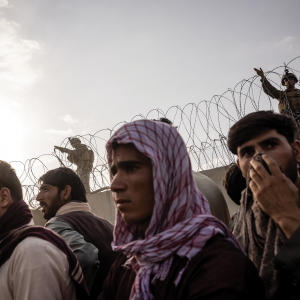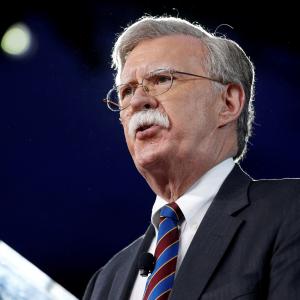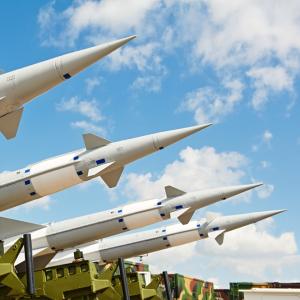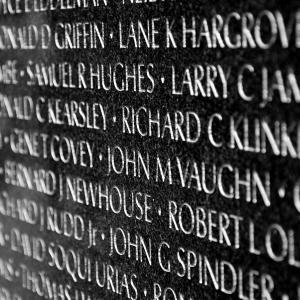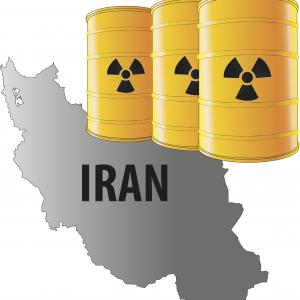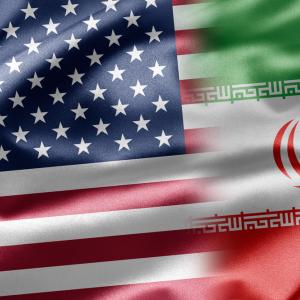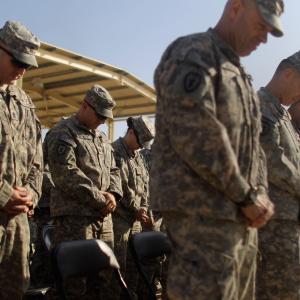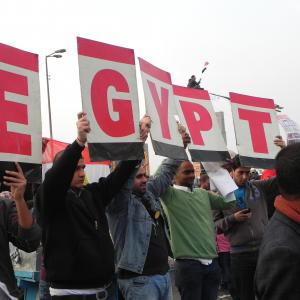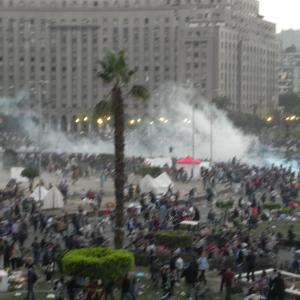
David Cortright, a visiting scholar at Cornell University and professor emeritus at Notre Dame’s Keough School of Global Affairs, was co-director of SANE/Freeze. His books include Protest and Policy in the Iraq, Nuclear Freeze and Vietnam Peace Movements (Cambridge University Press, 2025), Ending Obama’s War: Responsible Military Withdrawal from Afghanistan (Paradigm Publishers, 2011), and Peace: A History of Movements and Ideas (Cambridge University Press, 2008).
Posts By This Author
People of Faith Helped Stop Nukes Once; Let’s Do It Again
Trump is calling for renewed nuclear testing. We know how to stop it.
THE LAST NUCLEAR weapons accord, which caps the world’s two biggest nuclear arsenals, expires in February. Signed in 2010, the New START treaty is the final remaining between the U.S. and Russia to limit nuclear weapons. Absent new constraints, the two sides will likely increase the number of deployed nuclear weapons. And thus begins a new acceleration of the nuclear arms race.
In late October, President Donald Trump added fuel to the fire by ordering the resumption of U.S. nuclear testing. Such a step prompts other nations to do the same—indeed, in early November, Vladimir Putin ordered Russian officials to submit plans for “retaliatory” nuclear tests—and reverses one of the signature achievements of the disarmament movement, a de facto nuclear test ban that has lasted more than 30 years.
As participants in the antinuclear weapons movement of the 1980s, we are dismayed to see the gains of that era reversed.
The War In Afghanistan Carried On Our Greatest Sin
Vengeance is a formula for a vicious cycle of violence.
“I GRADUATED FROM university in 1968. I was drafted immediately. I had not really thought much about the war, but the more I talked to the guys who were coming back from Vietnam, the more I realized that this thing was terribly wrong. I began to think of the Vietnamese forces as liberation forces trying to free their country from foreign invasion—we were the invaders.
I went through a crisis of conscience. I saw a news report about soldiers who were speaking out against the war. I thought to myself, I can do that. I began to organize among soldiers in the barracks. We submitted a petition signed by 1,300 active-duty service members that was published in The New York Times.
The basis of my commitment to activism is faith: the belief that our role in life is to serve others, to overcome suffering and injustice, especially war, which to me, is the greatest sin."
Afghanistan Papers Reveal a Scaffold of Lies
While Trump throws fuel on the Middle East tinderbox, peacemakers wrestle with the challenge of peace in endless war.
IN 2016, CANDIDATE Donald Trump vowed to halt “endless wars.” The Democratic candidates running for president this year have made similar promises.
Yet, following the drone-strike killing of Iran’s senior military commander in early January, more troops are going to the Middle East and military tensions have increased. U.S. forces continue to drop bombs and conduct combat operations in Afghanistan and other countries, as Washington’s propensity for military intervention shows little sign of abating. The power of the Pentagon has increased and will grow further in the years ahead as the 2020 military budget doubles down on money and weapons to wage war across the globe.
When most of us hear the term endless war, we think of Afghanistan. Rightly so, as the war is now in its 19th year, with no end in sight. For years we were told by political leaders, including President Obama, that the Afghanistan conflict was a legal and justified war, as opposed to the illegal invasion and occupation of Iraq. Our persistent efforts, we were told, were paying off in countering terrorism and advancing democracy and human rights.
Now we know this was a lie. The release of the so-called Afghanistan Papers in December revealed systematic deception and failure. Based on 2,000 pages of confidential interviews with those who fought and directed the war, the Afghanistan Papers confirm that Pentagon and White House officials made claims of success they knew to be false and refused to admit the war was unwinnable.
Donald Trump's Nuclear Tweets
Restarting the Cold War, 140 characters at a time.

Image via Flickr / torbakhopper / CC BY-NC-ND 2.0
DONALD TRUMP HAS released many bizarre and disturbing tweets in recent months, none more alarming than his statements in December that the “U.S. must greatly strengthen and expand its nuclear capability” and “Let it be an arms race. We will outmatch them at every pass and outlast them all.”
Commentators were dumfounded by the messages, which seemed to come out of nowhere, and dismissed them as bluster not to be taken seriously. The tweets were deeply troubling, however, and indicate that the new president is ignorant of nuclear realities and intent on ratcheting up nuclear spending and challenging others to keep up.
Thankfully, the potential competitors in such a contest seem uninterested. Russian President Vladimir Putin announced during his annual press conference the day after Trump’s messages that Russia will reduce military spending next year as it adjusts to economic recession at home. China has indicated no change in its longstanding policy of maintaining a small but capable nuclear force. Trump may be ready for an arms race, but as of now his rivals seem to have no interest in running.
Nuclear bravado can change these calculations, however, especially if it is accompanied by substantial increases in spending for new weapons. Trump has promised to give more money to the military and bolster nuclear capability. U.S. weapons makers Boeing and Lockheed are competing for multibillion-dollar contracts to replace and upgrade the U.S. land-based missile force. Former Defense Secretary William Perry has argued that the plan to rebuild nuclear missiles is wasteful, unnecessary, and dangerous.
The Danger of John Bolton
John Bolton is a menace, a “warmongering lunatic” writes Damon Linker, “a dangerous uber-hawk” in the words of former national security officials Colin Kahl and Jon Wolfsthal. Throughout his career, Bolton has been a consistent advocate for war as an instrument of national policy. He opposes the Iran nuclear deal and dismisses the value of negotiating with North Korea, urging instead the use of military strikes and the policy of regime change.
Risky Business
Why U.S. airstrikes on another Arab country is a very bad idea.

iamshutter / Shutterstock
ADD LIBYA TO the growing list of countries where the United States is conducting military operations in the name of fighting terrorism.
In February, a U.S. airstrike in the town of Sabratha in western Libya killed more than 40 people. The intended target was said to be Noureddine Chouchane, a senior commander of the so-called Islamic State (ISIS) from nearby Tunisia, but there has been no independent confirmation that he was at the site. Among those killed in the attack were two Serbian embassy staff who were being held hostage by ISIS.
Since the overthrow of the Gadhafi regime in 2011, Libya has been engulfed by chaos. There are now two competing governments—one in the eastern city of Tobruk (recognized by the United Nations) and the other in Tripoli—neither with much power or public support. Real power in the country is in the hands of hundreds of militia groups that rule local areas and often support rival government factions. Many of the militias oppose the presence of foreign forces, and the Tripoli-based government vigorously criticized the U.S. attack on Sabratha.
Pentagon commanders believe that bombing and commando operations can reduce the terrorist threat in Libya, but the experience of military intervention in other countries during the past 14 years suggests otherwise. U.S. military attacks have not brought stability and peace to Afghanistan, Iraq, Yemen, Somalia, or Syria. Why do we think they will solve the problems now in Libya?
The United States fought a major war in Iraq to suppress al Qaeda, but that organization morphed into the even-more-dangerous menace of ISIS. The U.S. has conducted more than 10,000 military strikes against extremist targets in Syria and Iraq during the past 18 months, but the threat from ISIS in the region remains formidable and is now spreading to Libya.
A Good Deal Worth Protecting
The Iran Framework could be one of the most significant nuclear nonproliferation achievements in history.
IN APRIL, eight nations, including Iran, announced an agreement for addressing Iran’s controversial nuclear activities. The Iran Nuclear Framework, supported by many Christian leaders in the U.S., is seen as an opportunity to “dramatically restrain the capacity of Iran to acquire nuclear weapons.” It could be one of the most significant nonproliferation achievements in history.
The proposed agreement significantly reduces Iran’s capacity to enrich uranium, closes the plutonium path to weapons capacity, and greatly increases international monitoring and verification of Iran’s nuclear infrastructure. It allows for lifting sanctions against Iran and opens the door to the possibility of improved bilateral relations.
The multiyear agreement sharply curtails Iran’s enrichment program. Iran has agreed to reduce by approximately two-thirds its installed centrifuges, from about 19,000 today to 6,104 under the deal. And Iran has agreed not to build any new facilities for the purpose of enriching uranium for 15 years.
Vietnam Agonistes
The battle for hearts and minds continues, 50 years later.
THIS YEAR MARKS multiple 50th anniversaries of the U.S. escalation of the war in Vietnam and the beginning of major anti-war protests. To mark the anniversary of the war, the Pentagon is sponsoring an official, multimillion dollar Vietnam War Commemoration to “thank and honor veterans.” This program has been criticized as a Vietnam whitewash and an attempt to rewrite history. The Pentagon commission will sponsor more than 1,000 events around the country that will have the effect of honoring the military and obscuring, behind a façade of false patriotism, the painful truths of the Vietnam War.
The Pentagon’s commemorations are missing any consideration of critical unlearned lessons, such as: 1) the Vietnam War was unjust and never should have been fought, 2) wars of military intervention have failed and should be avoided, 3) militarism and war have corrupted U.S. political decision-making, and 4) diplomacy, development, and peacebuilding strategies are preferable and more effective means of resolving international conflict.
The Power of Peacebuilding
A military-only strategy won't defeat ISIS, and may even make things worse.

Image via Flickr / Alisdare Hickson / CC BY-SA 2.0
THE PEACE MOVEMENT needs a stronger response to the threat posed by the Islamic State in Iraq and Syria. It is not enough merely to oppose deepening U.S. military involvement. We must also identify viable diplomatic and political options for countering the ISIS danger and reducing violence in the region.
President Obama has said there is no military solution to the crisis in Iraq, but his administration has relied heavily on bombing as its main response to ISIS. Since August, the United States and about a dozen other states have launched more than 1,900 air strikes against ISIS and militant groups in Iraq and Syria. Approximately 80 percent of the strikes have been conducted by U.S. forces, mostly jet fighters but also armed drones. The strikes have had the effect of halting further ISIS encroachments into Iraq and have enabled Kurdish fighters to regain some ground in the northern part of Iraq. In Syria, however, ISIS reportedly has continued to gain ground despite the U.S.-led attacks.
U.S. military involvement in Iraq and Syria is having unintended effects that could make matters worse. Battling the United States gives ISIS a transcendent objective beyond its political agenda in Iraq and Syria and distracts local attention from its brutal policies. It allows ISIS to portray itself as the victim and to claim that it is defending Islam from Western attack. After the start of airstrikes in August, support for the group increased. The strikes in Syria have also targeted the al Nusra Front and have generated pressure for rival groups to close ranks. Unlike al Qaeda, ISIS has not declared war on the United States, but it may now rethink its strategic focus and plan attacks on the “far enemy,” to use al Qaeda’s term.
Needed: An International Strategy in Iraq
The crisis in Iraq poses two challenges — a humanitarian effort to rescue persecuted minorities, and a security mission to suppress the extremist threat posed by the forces of the Islamic State in Iraq and Syria (ISIS).
The U.S. is right to play a leading role in aiding the Yazidis, Christians, and other threatened minorities in Iraq. The immediate threat against the Yazidis has eased, but minority groups in the region remain endangered by violent extremism. The Obama administration should work through the United Nations to turn this into a genuine international rescue effort. The greater the degree of international participation and support for the aid mission, the more beneficial and legitimate it will be for the recipients.
The U.S. is also right to call attention to the threat posed by ISIS, but we need to do more to mobilize international pressure against the group. The Islamic State is in many respects more dangerous than al Qaeda. It has conquered Mosul and other major cities, taken control of dams and oil facilities, and is steadily expanding its sphere of influence in Syria and Iraq. It has formed a terrorist army with an estimated 10,000 fighters and is now armed with tanks and advanced U.S. weapons stolen from the Iraqi army. The group poses a significant threat to the security of the region and the world.
Between Iraq and a Hard Place
U.S. intervention has been the problem in Iraq, not the solution.
THE DEEPENING CRISIS gripping Iraq is a clear and present danger to global security. The crisis is fundamentally political in nature, however, not military. It cannot be resolved through the use of force, least of all by external military action from the United States. In the past, U.S. intervention has been the problem in Iraq, not the solution. Indeed many of Iraq’s current problems can be traced to the consequences of the U.S. invasion and occupation.
The United States now has a responsibility to help the Iraqi people, having contributed so much to their current travails, but our involvement should be diplomatic and humanitarian, not military. We should work through the United Nations to exert pressure on the violent extremists who are threatening the region and to mobilize international support for political and diplomatic solutions to the conflicts.
A major center of concern today is the extremist group called the Islamic State of Iraq and Syria, now identifying as the Islamic State. This group led the military takeover of Mosul and other Iraqi cities. It is a direct offshoot of the al Qaeda forces that emerged during the armed resistance to the U.S. invasion, but is now a rival to, and even more extreme than, al Qaeda.
Prior to 2003, al Qaeda did not exist in Iraq. It was only after the U.S. invasion, which shattered the state and sparked widespread violence and insurgency, that Islamist extremist groups were able to gain a foothold in Iraq. American actions fostered staggering levels of corruption and exacerbated growing Sunni-Shia sectarian tensions.
A Good Deal With Iran
The nuclear agreement with Iran is a triumph of diplomacy. It stops the expansion of Iran’s nuclear program, rolls back some of its most worrisome elements, establishes more rigorous monitoring to guard against cheating, and suspends some sanctions on the Iranian people.
If implemented, this agreement will significantly reduce the potential nuclear threat from Iran and enhance the security of Israel and other states in the region. Secretary of State John Kerry and President Barack Obama deserve credit for supporting the diplomatic effort.
The agreement includes a commitment from the U.S. and its allies to “not impose new nuclear-related sanctions for six months.” This means that the U.S. Senate must defer any further sanctions measures to allow compliance to proceed.
Bridging the Persian Gulf
Diplomatic talks with Iran could end the nuclear standoff—and more.
AT LAST, AFTER more than 30 years of isolation since the Islamic Revolution of 1979 overthrew the U.S.-installed Shah, American and Iranian officials are talking to each other. The late September telephone conversation between President Obama and Iranian President Rouhani was an important first step. If the two sides can reach an agreement on ending the nuclear standoff, it could pave the way for other forms of cooperation that could significantly improve regional and global security.
Because of the historical mistrust between the United States and Iran that goes at least as far back as the 1954 CIA-backed coup that overthrew Iran’s democratically elected prime minister, achieving progress will require diplomatic flexibility on both sides. The core objectives of the international community are to prevent Iran from developing nuclear weapons and to guarantee that its nuclear program is solely for peaceful purposes. This can be accomplished by convincing Tehran to accept binding limits on its nuclear program and by robust monitoring mechanisms to guarantee the absence of military-related activities.
Iran’s objectives are to gain international acceptance of its right to develop nuclear energy, including uranium enrichment, and to obtain relief from crippling sanctions. If Tehran takes steps toward accepting limits and agreeing to enhanced transparency and monitoring, Washington should offer an initial partial suspension of sanctions and pledge to lift additional sanctions as progress proceeds. This would help jump-start the talks and strengthen President Rouhani’s hand in the face of hardliners.
Seeking Nonviolent Solutions in Syria
Working with the U.N. for a negotiated settlement has a greater chance of success than military involvement.
PRESSURE IS BUILDING for the United States to become militarily involved in the Syrian civil war. The result would be further bloodshed and destruction for the people of Syria, the worsening of an already grave regional security crisis, and U.S. involvement in another Middle East war.
The Obama administration has apparently decided to provide arms to the rebels. Sen. John McCain and others in Congress are calling for a no-fly zone and air strikes against Syrian government targets. The increased hard line comes in response to allegations that Syrian government forces have used chemical weapons, crossing the “red line” President Obama warned against—although reports have surfaced that rebel forces also may have used chemical weapons.
Concerns about the use of chemical weapons are serious, but they are not a justification for military action that could drag U.S. forces into the deadly civil conflict. Bombing strikes would not be sufficient to neutralize Syria’s vast arsenal of chemical weapons, and they could cause chemical explosions that would release the deadly toxins we seek to contain.
For a military operation to achieve results, it would have to be a large-scale undertaking. Creating a humanitarian safe zone or attempting to impose a no-fly zone would require a major commitment of allied forces and would lead to serious military confrontation with hostile Syrian forces.
Ten Years After Iraq
We’re approaching the 10th anniversary of the invasion of Iraq — an appropriate time to reflect upon the antiwar ferment that gripped the globe at that time.
Virtually the entire world opposed the U.S.-led invasion. Feb. 15, 2003 was the largest single day of antiwar protest in history. An estimated 10 million people demonstrated against the war in hundreds of cities on every continent — more than a million in London and hundreds of thousands in Barcelona, Rome, Sydney, Berlin, and New York.
Arms Merchant to the World
The United States has surpassed all records in global arms sales — a whopping $66.3 billion in armaments sold last year.
Most of the weapons went to Persian Gulf nations, although India also bought more than $4 billion in military equipment. U.S. arms sales in 2011 were triple the previous year’s level and the highest annual total ever recorded.
The U.S. is once again the world’s number-one arms proliferator, accounting for 75 percent of global arms sales. Word of this dubious distinction comes as our leaders claim to support and have been working at the United Nations to negotiate a global Arms Trade Treaty.
The report makes a mockery of the UN negotiations and our government’s presumed commitment to control the arms trade.
Preventing an Iranian Bomb
History shows engagement, not attack, dissuades countries from developing nuclear weapons.
CALLS FOR THE use of military force against Iran are dangerously misguided. Israeli bombing strikes are not capable of destroying Iran’s deeply buried and dispersed nuclear program, most experts agree. Attacking Iran would prompt a violent reaction that could plunge the United States into another war and unleash a regional conflagration. According to U.S. intelligence estimates, Iran has not yet decided to build a nuclear bomb. If attacked, Iran would almost certainly resolve to proceed.
Consider the lessons of history: Israel’s bombing of a nuclear reactor near Baghdad in 1981, far from ending Iraq’s nuclear program, prompted Saddam Hussein to accelerate that program and begin manufacturing weapons-grade uranium. When U.N. inspectors entered the country 10 years later, they discovered that Iraq was only a year or so from having the bomb. The inspectors dismantled Iraq’s nuclear program, succeeding where bombing had failed.
Sanctions and diplomacy offer a far less risky and more effective strategy for preventing Iran from acquiring nuclear weapons. To be successful, however, sanctions must be combined with incentives as part of a diplomatic strategy designed to achieve a negotiated settlement.
The Obama administration has convinced the U.N. Security Council and countries in Europe and beyond to join in a rigorous set of sanctions that have cut off financial transactions with Iran’s major banks and curtailed purchases of Iranian oil. As a result, inflation is rising, the Iranian rial has lost half its value in the past year, and economic hardships are mounting.
Egypt's Bumpy Road to Democracy
Initial results from Egypt’s first round of elections produced an unexpectedly large showing for Islamists. The Freedom and Justice Party of the Muslim Brotherhood gained approximately 37 percent of the seats selected from political party lists, in line with predictions. The real shocker was the 24 percent vote obtained by the al-Nur party of the Salafi movement. The Salafis are extreme conservatives who favor restrictions on the role of women and Saudi-style controls on public morality. Liberal-left parties in the various party blocs gained about 37 percent. The results are very preliminary, with two more rounds of voting still ahead.
Revolution 2.0: Fulfilling Egypt's Democratic Promise
The huge throng filled the entire Square and was reminiscent of the historic mass mobilizations in February that brought down the Mubarak dictatorship. The rally was announced as a ‘million man march’ and was backed of a broad cross section of Egyptian activist groups, from liberal secularists to conservative Islamists. The Muslim Brotherhood did not support the march, although many of its youth members joined the crowd. The rally had a positive and hopeful spirit, in sharp contrast to the earlier violent clashes, which we witnessed on November 20.
The atmosphere in the Square on Friday was almost festive. We saw families with children, vendors selling food and drinks, face-painting on children (and thanks to a group of laughing teenagers, painted hands) and everywhere we saw the red, white, and black stripes of the Egyptian flag. It was a diverse crowd, young and old, women and men, middle class and the very poor. We were welcomed and greeted warmly by many.
The crowd was friendly but determined in its commitment to fulfill the promise of the revolution. There were no speeches, but constant chanting rose from groups throughout the Square, all with a similar message: Military rule must end.
Dark Days in Tahrir Square
As we gazed in shock at the battle below, Dr. Nadia quietly stepped back from the balcony.
We turned and saw her sitting alone in her office, hanging her head, shaking it from side to side in dejection. She had just said that the continued clashes were harming the revolution, that unknown forces were at work among the activists and in the military to undermine the revolution and prevent the transition to democracy.
No good can come from this, she said. Little could she have imagined that her words would be so quickly and horribly confirmed.

